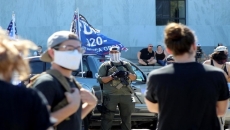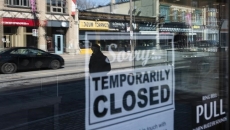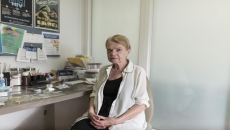Finance Minister Chrystia Freeland will face a grilling on Thursday night in the House of Commons over her government's latest bid to reshape aid to businesses hit hard by COVID-19.
Opposition MPs will have the chance to question Freeland for four hours about different aspects of the bill, known as C-9, and the country's pandemic-plagued economy.
Billions in federal aid has already helped replace lost income and manage costs for companies facing revenue declines.
The aid package would change under C-9 by extending a federal wage subsidy until next summer, cancelling a previously-planned decline in its value, as well as expanding a popular business loan program.
The legislation would also redo a rent relief program that was widely criticized because its original design needed buy-in from landlords, many of whom did not participate.
The Liberals reached an agreement with opposition parties yesterday to fast-track the legislation through the House of Commons and have it passed by tomorrow.
The Senate would still have to take up the bill afterwards before its provisions can be enacted.
Speaking to reporters on Thursday morning, Bloc Québécois Leader Yves-François Blanchet said he wants to make sure changes to the wage subsidy include provisions to make political parties ineligible for the aid.
The Liberals, Conservatives and New Democrats used the wage subsidy program earlier this year when their donations dried up from the pandemic.
"They should never, even if they would have been in difficulty, have touched that money," Blanchet said.
The most recent federal statistics show the wage subsidy program has paid $46.8 billion in aid to 344,290 different businesses since its launch.
The Liberals have vowed to provide a fiscal update soon, but Freeland has yet to say when that document will be released to provide a fresh view of federal finances.
The government's last look at the books in July estimated a deficit of $343.2 billion this fiscal year, but that was before additional promises laid out in September's throne speech.
Freeland has since warned about rolling back aid too soon because it would cost the country more in the end.
Statistics tracked by The Canadian Press show there have been about 1.8 million claims for employment insurance since the system came back online at the end of September (after having been temporarily replaced by the Canada Emergency Response Benefit), and about $1.15 billion paid in benefits.
About one million more people have applied for the new Canada Recovery Benefit, which is paid to those who don't qualify for EI, and received almost $2 billion in aid.
The parliamentary budget officer will say Friday how much spending federal finances can handle before deficits spiral out of control.
The New Democrats put a proposal to the House of Commons on Thursday to cover the aid bill via a wealth tax on those worth more than $20 million, which the PBO estimated would rake in $5.6 billion, and tax what the party called excess profits for large corporations.
NDP Leader Jagmeet Singh said excess profits would be anything well above the normal trend lines for business earnings, with an assessment of how much of that was due to COVID-19.
"Instead of putting the burden on people, we should ask those who have done really well in this time to pay their fair share," he said.






